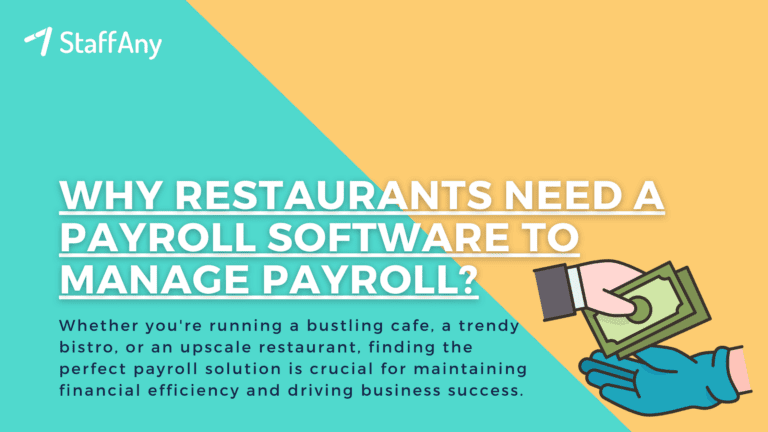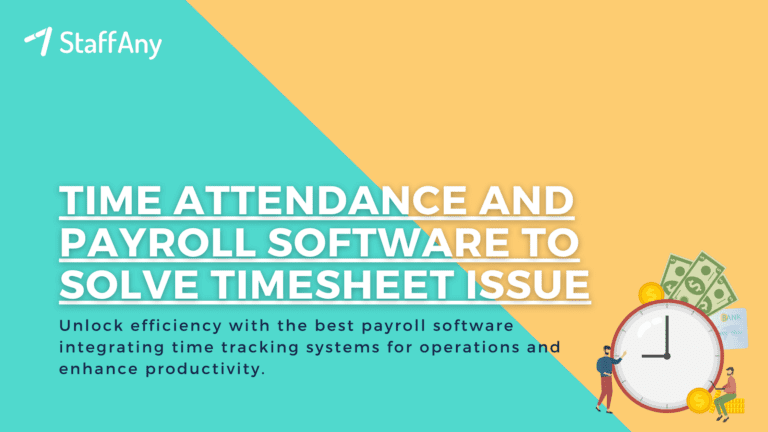Part-time employment has become increasingly prevalent in the modern workforce, offering flexibility for both employers and employees. It’s a work arrangement that caters to diverse needs, allowing individuals to balance work with other responsibilities or pursuits. However, amid this rise in part-time work, a burning question for many is whether part-time employees are eligible for benefits.
In this comprehensive guide, we will explore the eligibility criteria for part-time employee benefits, the most common part-time benefits in Malaysia, and the advantages of offering these benefits. So, whether you’re an employer looking to attract and retain top part-time talent or a part-time worker seeking to understand your entitlements, read on to uncover the insights into the world of part-time employee benefits in Malaysia!
Are Part-Time Employees Eligible for Benefits?

The world of part-time employment is marked by its flexibility, making it an attractive option for both job seekers and employers. Part-time workers have the advantage of balancing their work commitments with other aspects of their lives, be it education, family responsibilities, or pursuing personal interests. However, amidst the appeal of this work arrangement, a fundamental question often looms large: Are part-time employees eligible for benefits?
The answer to this question is not as straightforward as one might think. Eligibility for benefits as a part-time employee can be influenced by a multitude of factors. These factors encompass the labour laws and regulations of the country in which one is employed, the specific policies established by the company, and even the number of hours worked by the part-time employee.
In Malaysia, a country that mirrors the global trend of embracing part-time work, the situation is nuanced. Just as in many other nations, part-time employees here can indeed be eligible for certain benefits. The extent of these benefits, however, can be contingent on various factors, including the employer’s policies and the employment contract.
Read more: Can Part-Time Employees Get Overtime?
The Most Common Part-Time Benefits in Malaysia
When it comes to part-time employment in Malaysia, it’s essential to understand the benefits that can be available to these workers. While the specific benefits may vary from one employer to another, here are the five most common ones:
1. Paid Time Off (PTO)
Part-time employees in Malaysia are often eligible for Paid Time Off (PTO), but it’s essential to understand how this benefit works. PTO for part-time staff is typically granted on a pro-rata basis, which means it’s calculated in proportion to the number of hours they work compared to full-time employees. For instance, if a full-time employee receives 20 days of annual leave, a part-time employee working half the hours might receive 10 days. This ensures that part-time workers are treated fairly and can still enjoy some time off to rest and recharge.
2. Public Holidays
Part-time employees in Malaysia also have rights regarding public holidays. If a public holiday falls on a day when they are scheduled to work, they are generally entitled to receive their regular pay for that day. This provides financial security for part-time staff, ensuring that they don’t miss out on income during public holidays. However, the specifics of this benefit can vary, so it’s essential to consult the company’s policy or employment contract for precise details.
3. Medical Benefits
Some companies in Malaysia extend medical benefits to their part-time employees. This can encompass a range of healthcare benefits, including coverage for doctor’s visits, hospitalisation, and prescription medications. Such benefits can be invaluable for part-time workers, helping them manage their health and well-being effectively. However, the extent of medical coverage may differ between employers, so it’s advisable for part-time employees to inquire about the specific healthcare benefits they are entitled to.
4. Employee Discounts
Part-time employees in Malaysia may enjoy the same employee discounts as their full-time colleagues. These discounts can apply to various company products or services, offering part-time workers a financial advantage. For example, retail employees may receive discounts on merchandise, while restaurant staff might enjoy reduced prices on meals. Employee discounts not only provide tangible financial benefits but also foster a sense of belonging and appreciation among part-time staff.
5. Training and Development
To support their career growth and enhance their skills, part-time employees in Malaysia may have access to training and development opportunities provided by their employers. These opportunities can include workshops, courses, or on-the-job training. Investing in part-time staff’s professional development benefits both the employee and the employer, as it can lead to a more skilled and motivated workforce. Part-time workers should actively seek out these development opportunities to broaden their skill set and increase their future employability.
Read more: 10 Best Training Plans for Restaurant Staff
Advantages of Offering Part-Time Employee Benefits
Part-time employees can greatly benefit from the additional perks provided by their employers. These benefits not only enhance the well-being of part-time staff but also bring several advantages to the company itself:
1. Improved Employee Satisfaction
Providing part-time employee benefits is a powerful tool for enhancing overall employee satisfaction. When part-time workers have access to benefits like paid time off and medical coverage, they feel valued and supported by their employer. This sense of recognition can lead to increased job satisfaction, which, in turn, results in higher morale and a more positive workplace atmosphere. Satisfied employees are more likely to be motivated, engaged, and committed to their tasks, ultimately contributing to higher productivity levels.
2. Attracting Top Talent
In industries where part-time talent is highly sought after, offering competitive benefits can be a game-changer in attracting the best candidates. Skilled and experienced part-time workers are more likely to choose employers that provide comprehensive benefits packages. This not only strengthens the company’s workforce but also elevates its overall performance and capacity to deliver high-quality services or products.
3. Enhancing Company Reputation
A company that prioritises the well-being of its part-time employees builds a positive reputation in the job market. Such a reputation can have far-reaching effects, as it attracts not only top talent but also customers and clients who prefer to associate with socially responsible businesses. A strong company image, built on the foundation of valuing all employees, can lead to increased brand loyalty and growth opportunities.
4. Legal Compliance
Compliance with labour laws and regulations is crucial for any business. By providing part-time benefits in accordance with legal requirements, a company safeguards itself from potential legal issues and financial penalties. Ensuring that part-time employees receive the benefits they are entitled to demonstrates the company’s commitment to following the law, which is an essential aspect of corporate responsibility.
5. Flexibility and Retention
One of the significant advantages of offering part-time benefits is improved employee retention. When part-time staff feel valued and supported, they are more likely to stay with the company for the long term. Reduced turnover means less frequent recruitment and training, saving the company time and resources. Additionally, experienced and loyal part-time employees can contribute to the company’s institutional knowledge and operational efficiency.
6. Employee Loyalty
Part-time workers who receive benefits often develop a sense of loyalty to the company. This loyalty can manifest in various ways, such as increased job performance, a positive attitude towards their work, and a willingness to go the extra mile to help the company succeed. Employee loyalty can have a significant impact on team dynamics and overall company culture, fostering a sense of unity and shared goals.
7. Competitive Advantage
Providing part-time benefits can give a company a distinct competitive advantage in the job market. It sets the company apart from competitors who may not offer such comprehensive packages to their part-time staff. This distinction positions the company as an employer of choice, making it more attractive to prospective employees and enhancing its ability to recruit and retain top talent.
8. Better Work-Life Balance
Benefits like paid time off and medical coverage contribute to a better work-life balance for part-time employees. This means they can take care of their personal needs without compromising their job commitments. Improved work-life balance results in higher job satisfaction, reduced stress levels, and overall well-being. Employees who can effectively balance their work and personal lives tend to be happier and more productive in their roles.
Read more: 10 Causes of High Staff Turnover
In conclusion, understanding the eligibility and advantages of part-time employee benefits in Malaysia is essential for both employers and employees. These benefits not only enhance the well-being of part-time staff, but also bring numerous advantages to the company, including improved job satisfaction, talent attraction, and a positive company reputation.
To streamline your part-time employee management and scheduling while ensuring they receive the benefits they deserve, consider using StaffAny’s employee shift scheduling software. It’s a powerful tool that can help you efficiently manage your part-time workforce, making the entire process seamless and effective. Don’t miss out on the opportunity to create a positive work environment for your part-time staff – explore StaffAny today and take the first step toward a more productive and satisfied workforce!











